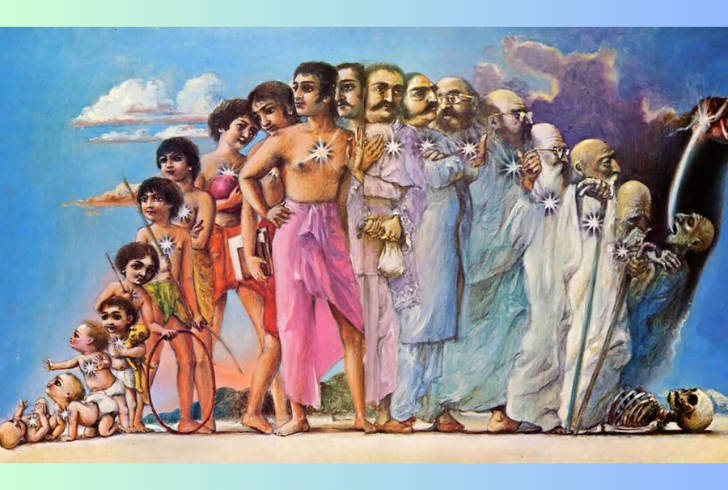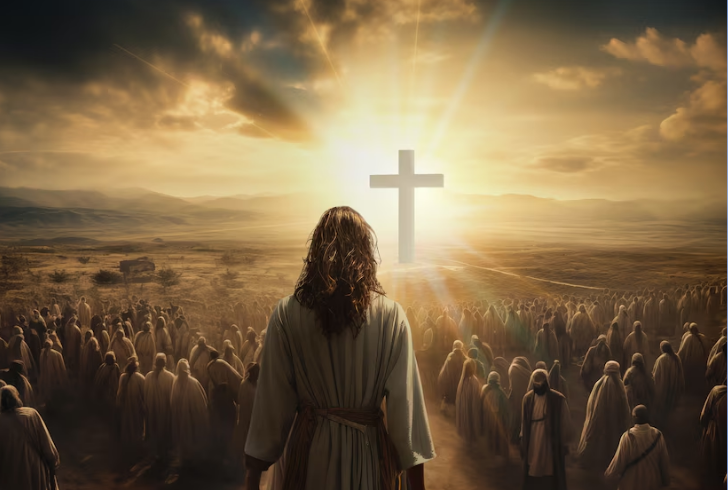The question of what happens after death is a profound one that touches the core of human curiosity and spirituality. Different religions offer varied interpretations, each shaping the lives and practices of their followers. One of the most intriguing perspectives comes from Hinduism, which presents a complex and rich understanding of life, death, and rebirth. But does Hinduism believe in an afterlife?
Let's delve into the beliefs of Hinduism and compare them with those of Christianity and Islam.
Does Hinduism Believe in an Afterlife?
In Hinduism, the concept of samsara—the cycle of death and rebirth—is central to its belief system. The soul, or atman, is believed to be eternal, undergoing a series of reincarnations until it achieves liberation. This leads us to the question - does Hinduism believe in an afterlife? While Hinduism doesn't conceive of an afterlife in the same way as some Western religions, the idea of rebirth serves a similar function, offering continuity and consequence to one's actions in life.
Reincarnation - The Endless Cycle

nowbali.co.id | Hindus believe that the soul, or atman, continuously reincarnates into new bodies after death.
Hindus hold that life is a continuous journey of the soul through various bodies and forms. When a person dies, the atman is reborn in a new body. Some Hindus believe this rebirth happens immediately, while others think the soul may dwell in other realms temporarily. The ultimate goal is to break free from this cycle and attain moksha, or liberation, where the soul is united with Brahman, the ultimate reality.
- Karma and Its Influence - Central to the concept of reincarnation is karma, the law of cause and effect. Good or bad deeds in one's life determine the circumstances of the next rebirth. A virtuous life leads to a higher form of existence, while a life of wrongdoing may result in a lower rebirth, possibly even in animal form.
- Path to Moksha - Attaining moksha is seen as the ultimate liberation. It can be achieved by living a life in accordance with the teachings of Hindu scriptures, which emphasize righteousness, devotion, and knowledge.
The Role of Heaven and Hell in Hindu Beliefs
While Hinduism emphasizes the cycle of rebirth, it also acknowledges the existence of heavenly and hellish realms. Souls may temporarily reside in swarg (heaven) or narak (hell) based on their accumulated karma before being reborn. These realms are not permanent destinations but part of the soul's journey toward moksha.
A Comparison with Other Religions
Christian Beliefs about the Afterlife

Freepik | Christians believe that salvation and eternal life come through faith in Jesus Christ and following Christian teachings.
Christianity offers a different perspective on life after death. The core belief is in the resurrection of the body and eternal life with God. Christians believe in heaven as a place of eternal joy and hell as a place of eternal separation from God. The path to salvation and eternal life is through faith in Jesus Christ and adherence to Christian teachings.
Islamic View on Life After Death
Islam teaches that life after death is a fundamental tenet of faith. Muslims believe in a Day of Judgment, where every soul will be resurrected and judged by Allah. Those who have lived righteously will enter Jannah (paradise), while those who have sinned without seeking forgiveness may be condemned to Jahannam (hell). The Quran and Hadith guide Muslims in living a life that prepares them for the afterlife.
Commonalities and Differences
Common Ground
Despite the differences in beliefs, Hinduism, Christianity, and Islam all emphasize moral accountability. Actions in this life have consequences in the next, encouraging adherents to live ethically and purposefully.
Different Paths, Shared Goals
- Hinduism focuses on liberation from the cycle of rebirth through spiritual enlightenment.
- Christianity emphasizes salvation and eternal life with God through faith and good works.
- Islam centers on submission to Allah's will and preparation for the Day of Judgment.
Each religion offers a unique path, but they all seek to guide followers toward a meaningful existence and a hopeful future beyond this life.
A Journey Beyond
So, does Hinduism believe in an afterlife? The answer lies in understanding that while Hinduism doesn't define an afterlife in the conventional sense, it offers a profound and interconnected view of existence that transcends the boundaries of life and death. The journey of the soul, guided by karma and seeking moksha, reflects a deep commitment to spiritual growth and enlightenment.
Understanding these diverse beliefs not only enriches our knowledge but also fosters respect and appreciation for the myriad ways humanity seeks to comprehend the mysteries of life and beyond.





